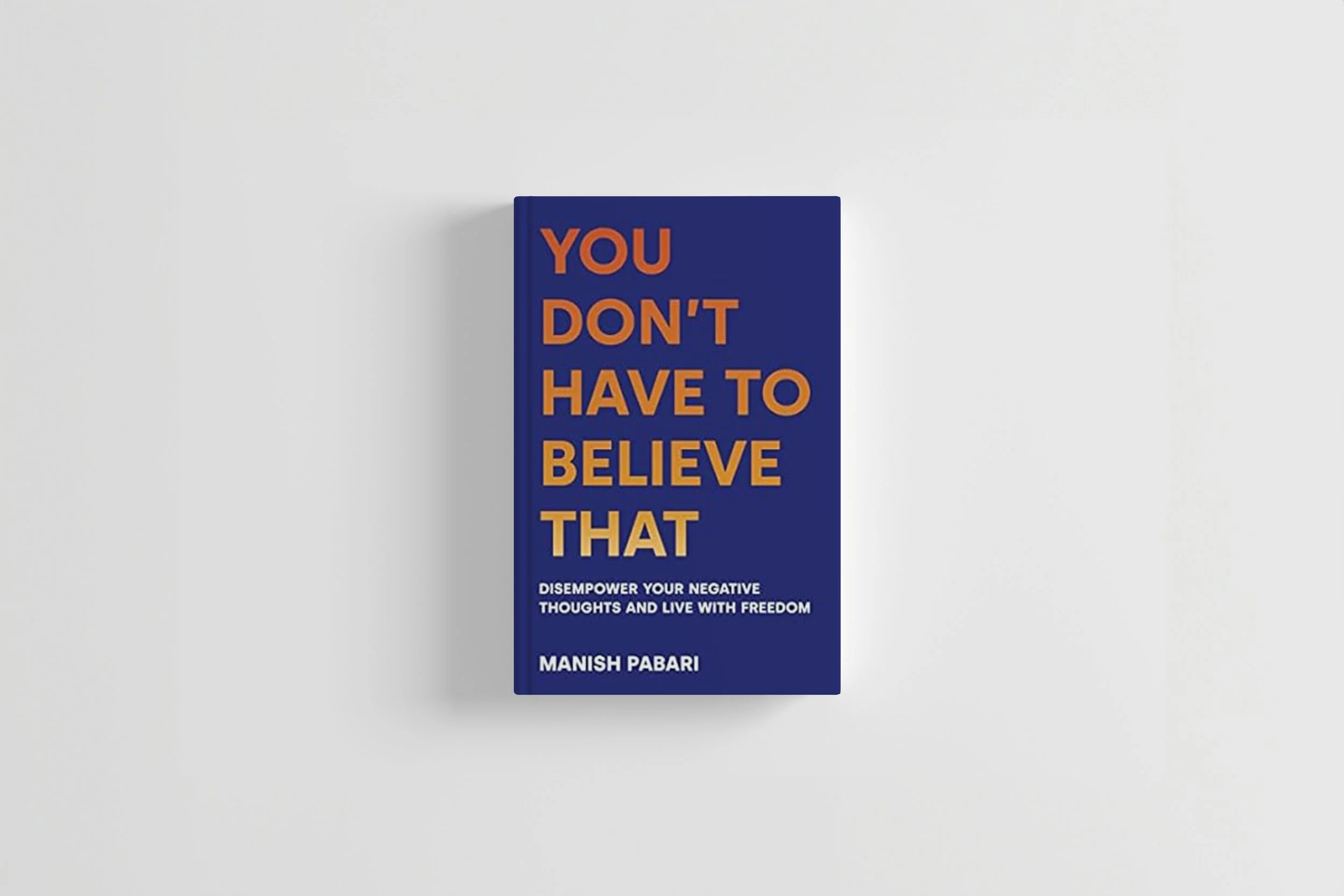You Don’t Have to Believe That by Manish Pabari
You Don’t Have to Believe That by Manish Pabari.
The secrets to understanding our thoughts.
Have you believed that external circumstances significantly influence your happiness and feelings at a given moment? Do you want clarity on the thought process of joy and happiness? Or are you simply just curious about how to disempower your negative thoughts?
In You Don't Have to Believe That, Manish explains the core principles of how emotions are directly linked to our thinking, not our circumstances, at any given moment. By diving into his knowledge, we can learn how we experience life from the inside out (our thoughts) and not from the outside (current circumstances).
Crossing paths with Manish.
I was fortunate to meet Manish last summer while crewing Tony Robbins' Unleash the Power Within in Birmingham, UK. And writing an article about someone's work you met in person makes it much more personal to me.
Manish is a man with a lot of empathy. We were fortunate enough to have many good conversations during the event. I still remember the warm and calm energy you projected on us that weekend. And that's how I got your book.
There is no direct link between our feelings and circumstances.
I found it immensely liberating to understand that we constantly feel our thinking and that it has nothing to do with our external circumstances. We all experience life from the inside out (via our thoughts). What if we can increase our awareness of our thoughts and how they impact us?
We all have an "inner voice," which can be loud at times—and we can hear it nearly all the time. Research from Queen's University in Canada and the Cleveland Clinic in the US tells us we create between 6,000 and 60,000 thoughts daily. As Manish writes, we can't control our thoughts all the time. Then, what will benefit our mental health the most is to gain awareness around our thoughts—and to choose which ones we don't have to believe.
"The truth is an accurate, objective reflection of events, which cannot be disputed. The truth does not change." Manish continues, "The truth is whatever is happening at that moment, without any personal interpretation."
Our inner judge loves to mess with our minds. We can overcome this by becoming aware and critical of the thoughts our inner judge proposes to us. Negative emotions stem from investing faith in and believing what our judge is serving us. We can embrace this knowledge to set us free by simply not believing what our judge is telling us.
The kindness of design.
"Our default mode is happy." These words can be life-altering, especially if you've suffered from trauma for a long time. The only thing holding us back from experiencing happiness is believing our judgmental thoughts. Happiness is a feeling, and it is available at all times in our lives.
Learning to trust our intuition is a process. Over the last few years, I've found it empowering to become aware of and honor my emotions. It is the greatest gift of self-love we can give ourselves.
A calm or still mind is our default state. And when we let our inner wisdom unfold, we will likely feel calmness and a sense of ease. We experience the most happiness when we are present in the given moment.
Expectations versus reality.
Comparing our expectations to our reality can cause us a lot of negative emotions. When our life expectations are more significant than our expectations, we experience happiness. When our life expectations are less significant than our expectations, we experience unhappiness.
The root cause of unhappiness is our expectations of ourselves and our lives. The most efficient antidote to this issue is to trade our expectations and replace them with appreciation.
Transform knowledge into practice.
In the final part, Manish explains how we can apply his teachings. They can be from a personal performance or relationship perspective, including the most important relationship—our relationship with ourselves.
I want to quote Manish in the final words: "Trust yourself that you are always doing the best at that moment based on your knowledge, experience, skills, and circumstances." I find those words truly profound and empowering.
I want you to feel authentic and empowered by making choices, not coincidences.

